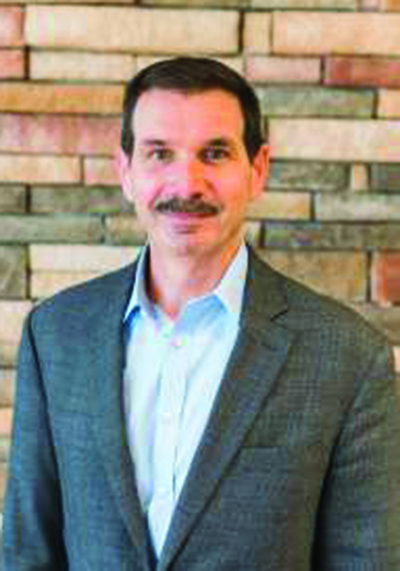
More than 150 community members called in to listen to Highlands Cashiers Hospital CEO Tom Neal usher in a potential new era of public meeting formats by hosting a virtual conference call town hall meeting Thursday evening.
For about an hour, Neal and Mission CMO Bill Hathaway answered questions from the Highlands and Cashiers community about COVID-19 and its impact on the area.
In an opening statement, Neal, who came to Highlands earlier this year, said Highlands Cashiers Hospital is here to serve.
“As much as you need us, this hospital… we need you,” Neal said.
So far, more than 100 patients have been tested locally for the COVID-19 virus, Hathaway said.
Neal said, while non-travel related COVID-19 cases haven’t come to Highlands and Macon County yet, they are coming and the community needs to be prepared.
“You cannot over-prepare for this,” he said. “We have been a little late coming to the party. We know it’s going to come and we’re working hard.”
A total of 15 cases of COVID-19 have been confirmed in the Western North Carolina area as on Tuesday afternoon. Two cases were reported in Watauga County, one in Jackson County, one in Transylvania County, four in Cherokee County, two in Henderson County and five in Buncombe County.
The Jackson County patient, a second home owner from Maryland, was tested for the virus at Highlands Cashiers Hospital and then transferred to Mission Hospital in Asheville for treatment.
Hathaway and Neal urged residents to stay at home.
“State of emergencies are not an over-reaction in any way,” Neal said. “As best we can we will be as prepared as we can. Take care of yourself and don’t become a patient.”
Neal advised residents to remain informed and to stay away from large gatherings.
Terms and phrases such as “social distancing” and “shelter in place” have now become part of the vernacular of the American public.
“These are unprecedented times,” he said.
So far, testing for COVID-19 has been reserved for those who appear the most sick.
“Widespread testing has left hospitals short-handed in regard to materials,” Hathaway said. “We are concerned for the most vulnerable, but it can effect anybody.”
Medical officials conduct COVID-19 testing in Personal Protective Equipment.
“We have limited supplies,” Neal said. “Testing is done in full protective gear.”
Mortality rates average between 1-2 percent of the infected population, Neal said, but the percentages can be misleading. “While the mortality rate for those around 20-years-of-age may be less than one percent, the mortality rate is above 10 percent for those more than 80 years old,” he said.
Neal added the hospital was as well equipped to handle “this great unknown,” as anyone.
“If you are not exhibiting symptoms of the coronavirus, you won’t be tested,” he said.
With concerns over the spreading of the COVID-19 virus closing schools, restaurants, businesses and canceling all gatherings involving more than 10 people, face-to-face meetings and public forums have been shuttered in favor of something more isolated. Neal sought to do his part in easing public concerns and getting the word out to neighbors.
Neal said COVID-19 will be a part of American lifestyle for some time as there was no short term fix.
Despite the downturn in new COVID-19 cases in China, which first appeared 10 weeks ago, COVID-19 could be a part of the international lifestyle for the next 12-18 months.
“Look at other countries and how long their numbers are projecting to see how long this will last,” Neal said. “I would prefer longer than shorter. This way we can implement procedures that could be sustained in combating this virus.”
For local residents Neal said the best thing they could do would be to continue practice good hygiene.
“Utilize good hand hygiene. Wash your hands. Don’t touch things. And don’t touch your face.”
Elective surgeries suspended
In other COVID-19 news, Mission Health announced effective Monday, all elective surgeries have been suspended in response to new Centers for Medicare and Medicaid Services guidelines issued as a result of the growing COVID-19 outbreak.
“Mission Hospital has well-established protocols in place to care for patients with infectious diseases, and we have been working diligently in our preparations for COVID-19,” said Hathaway, in a separate written statement on Friday. “Part of our response includes balancing our readiness to care for patients with COVID-19 while continuing to make sure the many other patients who depend on our hospitals receive needed and timely care.”
The new criteria for suggesting elective surgery would be based on factors to include the urgency of the procedure, the clinical judgment of the physicians as well as the current circumstances in the facility and the community, Hathaway said.
“We have been closely following the recommended guidelines from the Centers for Medicare and Medicaid Services to review scheduled procedures based on a number of factors,” Hathaway said.
CMS released the new guidelines for surgeries and procedures on March 18. These guidelines include several “tiers” of surgeries and procedures, with different guidance for each. As a result of these new guidelines, Mission Hospital will be canceling all non-essential surgery procedures as defined by CMS starting Monday, March 23.
“We will continue to accommodate the surgeries and procedures determined to be appropriate under the CMS guidelines, and conversations with clinical leadership and surgeons will continue to prioritize surgical cases in the future to ensure the hospital is prepared to safely meet the needs of all our patients, while protecting the health and well-being of our colleagues,” Hathaway said.
